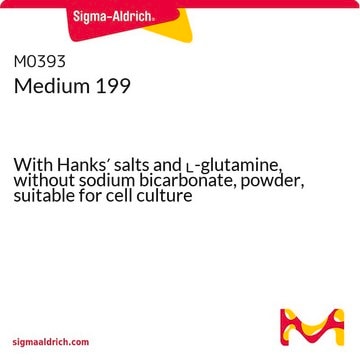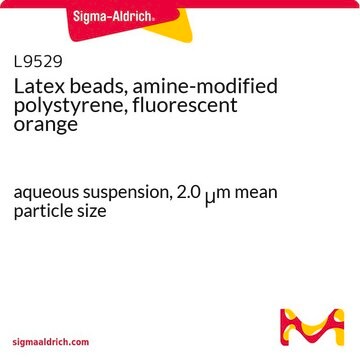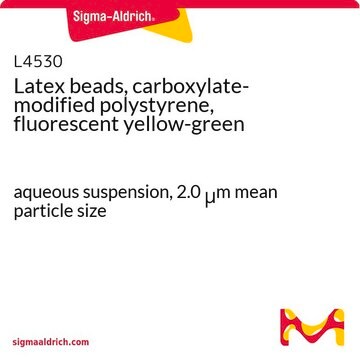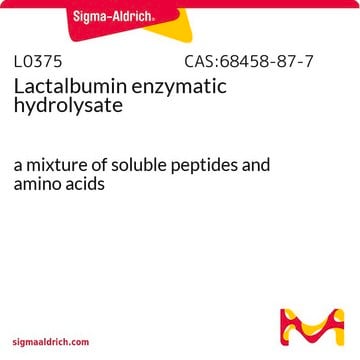M5017
Medium 199
With Earle′s salts and ʟ-glutamine, without sodium bicarbonate, powder, suitable for cell culture
Synonym(s):
Cell Culture Medium, M199 Medium, Medium 199 Solution, TCM 199
About This Item
Recommended Products
product name
Medium 199, With Earle′s salts and L-glutamine, without sodium bicarbonate, powder, suitable for cell culture
form
powder
technique(s)
cell culture | mammalian: suitable
components
L-glutamine: yes
phenol red: yes
NaHCO3: no
sodium pyruvate: no
Earle’s salts (5% CO2): yes
HEPES: no
shipped in
ambient
storage temp.
2-8°C
Looking for similar products? Visit Product Comparison Guide
General description
Quantity
Reconstitution
also commonly purchased with this product
Storage Class Code
13 - Non Combustible Solids
WGK
WGK 2
Flash Point(F)
Not applicable
Flash Point(C)
Not applicable
Certificates of Analysis (COA)
Search for Certificates of Analysis (COA) by entering the products Lot/Batch Number. Lot and Batch Numbers can be found on a product’s label following the words ‘Lot’ or ‘Batch’.
Already Own This Product?
Find documentation for the products that you have recently purchased in the Document Library.
Customers Also Viewed
Our team of scientists has experience in all areas of research including Life Science, Material Science, Chemical Synthesis, Chromatography, Analytical and many others.
Contact Technical Service






